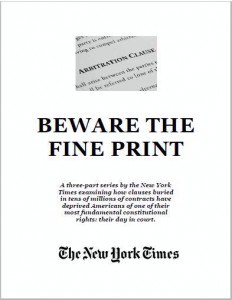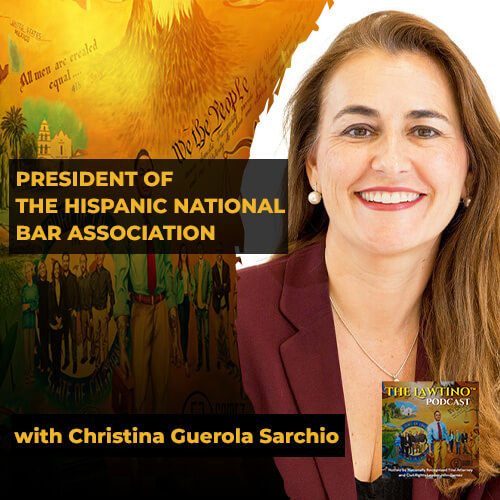[profileleft]

[/profileleft]
Forced Arbitration: Beware of the Fine Print
You have a Constitutional right and it’s been stolen from you. The worst part is, you didn’t even know it happened. The good part is every consumer rights attorney at Gomez Trial Attorneys is helping to do something about it.
On May 2nd & 3rd, GTA trial attorneys John Michael Montevideo and Max Halpern, in association with Consumer Attorneys of California (CAOC), met in Sacramento with California Assembly Members and Senators to discuss the harms to consumers from Forced Arbitration and the bills they can support to stop the harm.
How Forced Arbitration Cheats You Out of Your Legal Rights
As explained by the American Association of Justice (AAJ), hidden in the fine print of many consumer contracts – from credit cards and cell phone contracts to nursing home care and employment contracts – are dangerous forced arbitration clauses. Consumers and employees are often forced to sign these clauses in order to receive services or get hired and often don’t know they’ve signed away their legal rights until it is too late.
In the event of a dispute with the corporation, forced arbitration says that a consumer or an employee cannot take their case to court but instead has to go to a private arbitration forum designed by the very corporation the dispute is against — a process that tilts heavily in favor of the arbitrator’s corporate benefactors.
How You Are Hurt by The Fine Print:
- One-sided Requirements – Most forced arbitration clauses require the consumer to waive their rights, while allowing the corporation to sue in court.
- High Costs – Consumers often must pay steep filing fees just to initiate a case and pay their share of the arbitrator’s hourly charges. In addition, forced arbitration clauses often allow the corporation to choose the location, regardless of how inconvenient or costly travel will be for the consumer.
- Biased Decision-Makers – Since only businesses are repeat users of an arbitrator, there is a disincentive for an arbitrator to rule in favor of a consumer if he expects further retentions.
- Weak Civil Justice Safeguards – Forced arbitration clauses often severely restrict the individual’s ability to argue his or her side of the case. For example, many restrict the individual’s ability to obtain necessary evidence. Also, it is nearly impossible to appeal adverse decisions by arbitrators.
- Secret Backroom Proceedings – While proceedings and records of the courts are open to the public, most forced arbitration clauses require that proceedings be kept confidential, even if the case raises important public health and safety issues.
How Forced Arbitration is Already Affecting You
Buried in the fine print of countless contracts for everyday goods and services, a recent Politico article details, is language that bars people from holding corporations accountable in court for illegal, and sometimes dangerous, conduct.
The sharp shift away from the civil justice system has barely registered with Americans. F. Paul Bland Jr., the executive director of Public Justice, a national consumer advocacy group, attributed this to the tangle of bans placed inside clauses added to contracts that no one reads in the first place. “Corporations are allowed to strip people of their constitutional right to go to court,” Mr. Bland said in the 3-Part New York Times article dealing with Forced Arbitration head-on. “Imagine the reaction if you took away people’s Second Amendment right to own a gun” because you ordered a cup of coffee.
Examples of How This Affects You Today:
- Signs posted in a theater in Los Angeles and a hamburger joint in East Texas informed guests that, simply by walking in, they had agreed to arbitration. Consumer contracts with Amazon, Netflix, Travelocity, eBay and DirecTV now contain arbitration clauses.
- It is virtually impossible to rent a car without signing an agreement like Budget’s, which reads, “Arbitration, No Class Actions.”
- The same goes for purchasing just about anything online, which makes adding the clauses even easier.
- To top it off, recently Starbucks announced changes in its rewards program for users of its prepaid Starbucks Card. What that means is if Starbucks harms you at one of its stores, whether you can take them to court – and whether you can be fully compensated for your injuries – depends entirely on how you paid for your coffee.
What a Consumer Rights Attorney at GTA and You Can Do About It
First, you’ve already taken your first steps towards learning about this issue by reading this article.
Second, click on the additional video and article resources below to learn more. This includes, Robert Reich, former U.S. Secretary of Labor, narrates “Lost in the Fine Print,” a short documentary detailing the injustice of forced arbitration. Additionally, a link to all 3 parts of the New York Times articles explaining the Forced Arbitration emergency.
Third, on May 5th, regulators in Washington, D.C. are set to strike back. The Consumer Financial Protection Bureau (CFPB) and the U.S. Department of Education are expected to propose rules to rein in the abuses of forced arbitration, making for a growing number of federal agencies taking action against this unfettered exploitation of American consumers. “CFPB has taken an important first step towards protecting consumers from forced arbitration, and more can and should be done.” Says AAJ. “Congress, the White House and State Legislators should stand up for consumers and end forced arbitration once and for all.”
Fourth, know that consumer rights attorney John Michael Montevideo (GTA Senior Trial Attorney and Managing Partner of our Orange County Office), who is on the Board of Governors of the statewide organization CAOC, and Max Halpern (GTA Trial Attorney) are addressing the following bills in the state Capitol on your behalf:
- AB 2667 (Thurmond)– Ensures that forced arbitration cannot be used to deny a plaintiff their day in court as part of a civil rights case. Fact sheet (PDF)
- AB 2879 (Stone)– Strengthens protections for military veterans and reserve guard by prohibiting civilian employers from forcing them into mandatory arbitration over civilian job disputes arising when they are called away on behalf of our nation.
Fact Sheet (PDF) - SB 1065 (Monning)– Limits the use of forced arbitration in elder abuse cases under the Elder and Dependent Adult Civil Protection Act.
Fact sheet (PDF) - SB 1241 (Wieckowski)– This bill would restrict the corporate practice of adding provisions to consumer contracts that force people to travel long distances to other states to fight a dispute. It also would protect consumers from having their rights under California law stripped because a case is transferred to a distant venue. Fact sheet (PDF)
- SB 1078 (Jackson)– Addresses issues of bias and lack of fairness in consumer arbitrations by strengthening current rules related to marketing activities of private arbitration companies. Prevents profiting by arbitration companies if they’ve been removed during an arbitration for violations of ethical rules or disclosure requirements. Fact sheet (PDF)
Together we will fight Forced Arbitration and protect the balance of justice in America.
Robert Reich, former U.S. Secretary of Labor, narrates “Lost in the Fine Print,” a short documentary detailing the injustice of forced arbitration.
[profileleft]
[/profileleft]
A three-part NY Times series examining how forced arbitration denies U.S. citizens of a constitutional right: Their day in court. The New York Times recently published an investigative series of front page stories exposing the corporate bullying tactic of forced arbitration. The stories are based on thousands of court records, interviews with lawyers, judges, arbitrators and the people who have been affected by forced arbitration, in 35 states.
- The first story “Arbitration Everywhere, Stacking the Decks of Justice” describes the pernicious practice of forced arbitration, a get-out-of-jail free card for corporate wrongdoing.
- The second story, “In Arbitration, a Privatization of the Justice System” tells stories of consumers who lost their right to go to court when a school, a car dealership, and even a nursing home had done them wrong.
- The third and final story “In Religious Arbitration, Scripture is the Rule of Law” focuses on how religious tribunals, once used to settle family disputes and spiritual debates, are now being used to sort out secular problems like claims of financial fraud and wrongful death.
[profileleft]
[/profileleft]
Calls for a crackdown on forced arbitration – Link To Story







